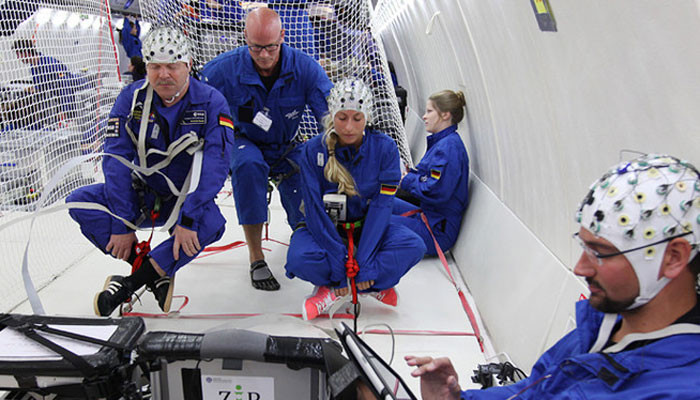Centre for Health and Integrative Physiology in Space (CHIPS)


Beside the Institute of Aerospace Medicine located at the DLR in Cologne and the Centre for Space Medicine at the Charité in Berlin, the Centre for Health and Integrative Physiology in Space (CHIPS) is one of three German researchers centers in the area of Space life Science. Established in 2011 under the lead of Prof. Stefan Schneider, the Center aims to serve as an interdisciplinary and integrative hub for a holistic understanding of human health.
Such an interdisciplinary approach offers a comprehensive view on the effects of living in space and extreme environments on physiological and psychological health and allows to design tailored countermeasures. Beside it is a major focus of the center to highlight the translational value of space life science research e.g. for rehabilitation and an aging society.
Just recently the CHIPS has gained the accreditation for a further education course “Space Medicine” by the German Society for Aviation and Space Medicine (DGLRM).
Current Highlights
- One of the recent success stories is the implementation of the MYOTON device for testing muscle health on board of the International Space Station (ISS). From the scratch on researchers of the CHIPS were involved in the design of the device, feasibility studies on board of a parabolic flight, and now just recently its application during the Horizons mission.
- The SarcoLab-3 project is a good example of an interdisciplinary approach and the added value of integrating researchers from different disciplines and different European countries and will provide a comprehensive analysis of the causes of loss of muscle force in space from the molecular to whole body level.
- Beside muscle and bone physiology a current project for the first time aims to apply brain imaging during the “Soyuz docking maneuver training” of the Russian cosmonauts. During the past five years a dry EEG system has been developed with industry partners, has just been shipped to the ISS and is now awaiting its first experimental session.
All highlighted project are described in more detail under “RESEARCH”. CHIPS associated staff can be found under “PERSONS”. Here you will also find a lint to each individuals research profile and publications on the GSUs research information system.
Kontakt/Contact

Stefan Schneider
Geschäftsführer/Managing Director
| Telefon | +49 221 4982-7520 |
|---|---|
| schneider@dshs-koeln.de | |
| Website |
Forschungsprofil
Sprechzeiten |
